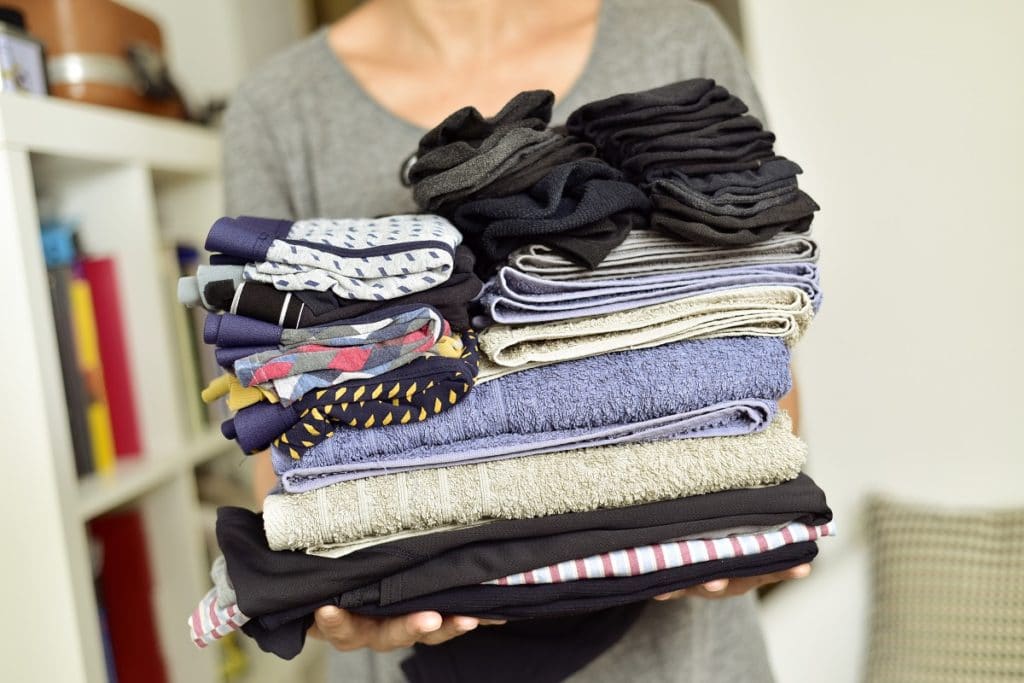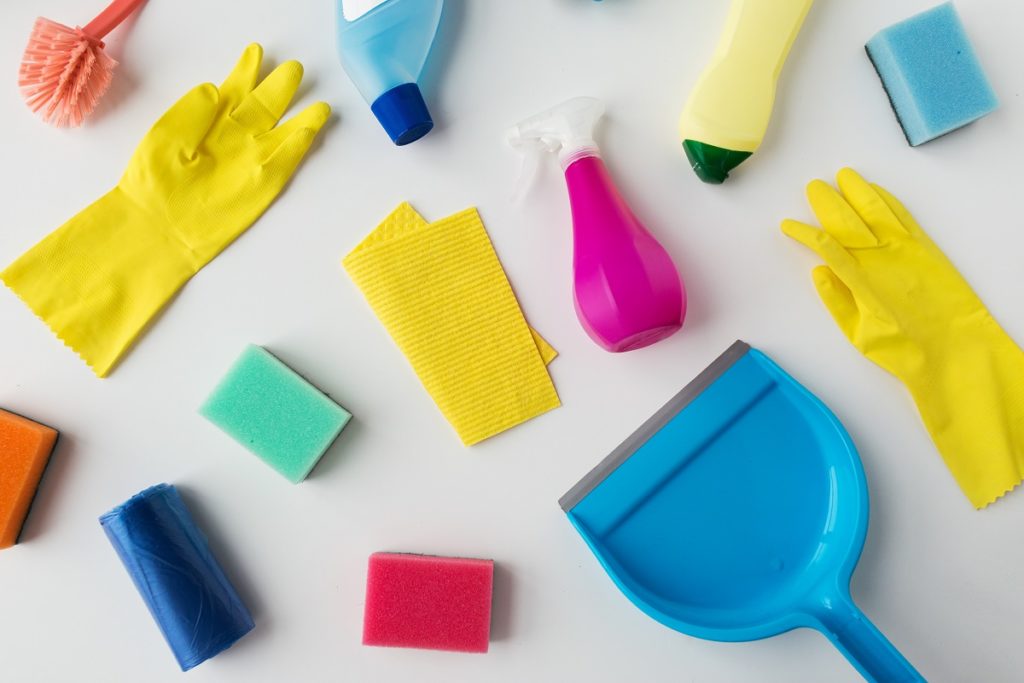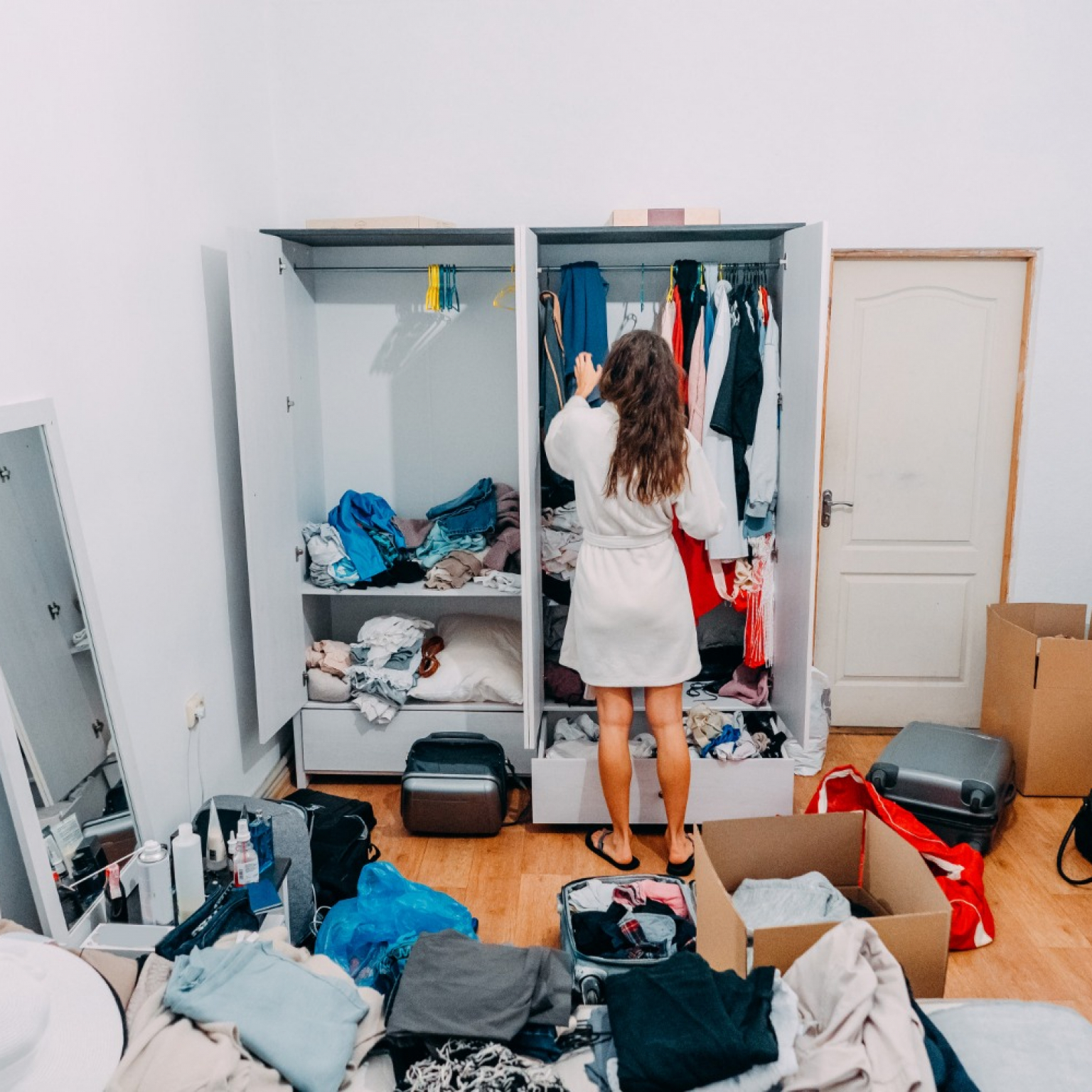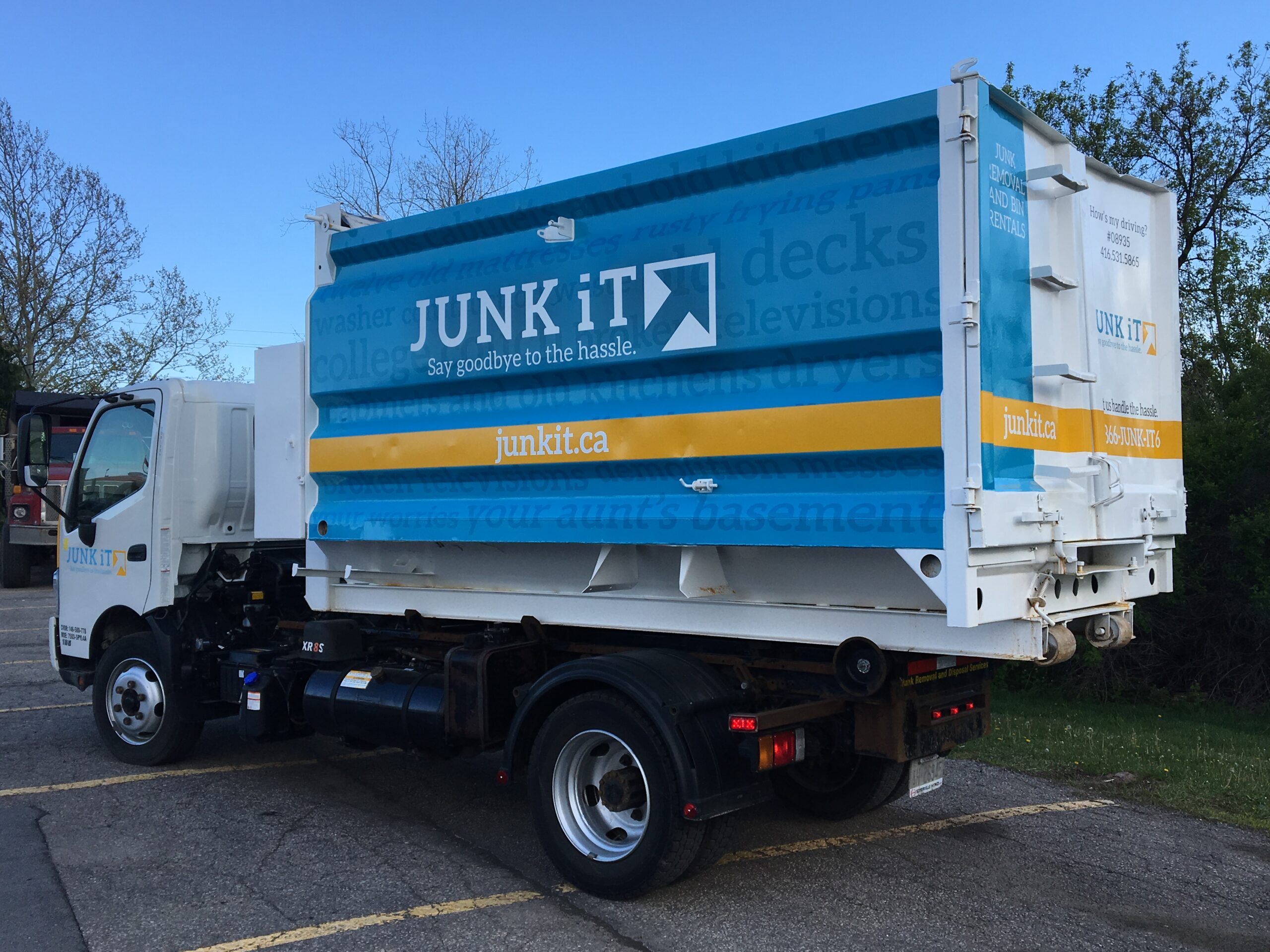Minimalism is a big trend these days. For a wide variety of reasons, many homeowners are deciding to declutter and downsize their homes. There are several steps to this process, and one of the most important is finding a bin rental company to take or remove the items you don’t need.
How a Bin Rental Company Can Help You Declutter and Downsize
There are several different reasons why people choose to declutter their homes. Junk builds up over the years and sometimes takes over whole rooms. But if you plan on downsizing to a new property, you can’t take it all with you.
Rapidly rising home prices mean that many homeowners have built up large amounts of equity. However, it’s not just older Canadians who are considering the merits of downsizing. Living a more straightforward, smaller life is appealing to a wide variety of homeowners.
Moving into a smaller home comes with several advantages. It can save money or make payments more manageable. Additionally, it can facilitate a shift in life, where you can spend more of your time and money on travelling, enjoying the company of trends, and have new experiences.
Best-selling authors like Marie Kondo or Margareta Magnusson (the Gentle Art of Swedish Death Cleaning) have captured the public mood, inspiring them to take a different approach to organizing their space. With minimalism, less is more.
If you’ve lived somewhere for a decade or more, you’ll accumulate a lot of possessions. But trying to declutter an entire home is not an easy process. Knowing where to start or what to focus on can be overwhelming.
If this is the stage you find yourself at on your downsizing journey, don’t worry. This article will provide you with the steps you need to take to declutter and downsize your home, from deciding how to sort what you do or don’t need up to the liberating moment of renting a disposable bin and saying goodbye to all those unnecessary items.
Advantages of Decluttering Your Home
While this article focuses on decluttering your home before you downsize, there are several benefits of decluttering a home even if you plan to stay in it.
We all tend to accumulate more things as we live, like clothes, books, kitchenware, electronics, furniture, etc. Many of these items are stored away just in case we need them. Often, they are forgotten about entirely.
In many cases, all this clutter is kept out of sight. Consigning junk to a garage, a garden shed, drawers or the attic can stop you from realizing how many unnecessary items you have. It’s only when you come to move that you know you’ll need a huge disposal bin to dump all these goods.
Many people live with clutter that takes over their living space. This scenario can make even large living spaces seem small and cramped.
There are several benefits to a decluttered home.
Mental Health
When your home is cluttered, your mind can also become cluttered. Living in a cramped and disorganized environment can have lots of negative outcomes. It can make you feel stressed to never be able to find anything or ashamed when you have visitors.
Even your sleep can be affected because your brain processes too many stimuli. A clean home gives you more clarity.
Easier to Clean
A decluttered home is easier to clean. Instead of moving boxes, clothes, and old magazines around a room to clean underneath, you can get right to floors, surfaces, and walls.
Accessing these spaces means that you can ensure your home is free of pests, mould, and any of the other things that can build up in confined spaces.
Reduce the Risk of Injury
If your home is cluttered, you increase the risk of someone having an injury. Tripping or falling over clutter is a surprisingly common cause of accidents around the house. So, clear those hazards away, and if you don’t need them, get them into a disposal bin.
Increase Home Value
If you are planning on downsizing, you’ll need to sell your home. As we mentioned earlier, too much stuff can make a home seem far smaller than it is. So make your home as attractive as possible by removing as many unnecessary items as you can.
We’d recommend hiring a bin rental and throwing out what you don’t need before putting your home up for sale.
Benefits of Downsizing Your Home
There are lots of reasons to downsize your home. Changes in circumstance or employment can mean you need to reduce spending. When your children move out, it can leave you with too much space. You might want to move to an area to be closer to friends and family, but the property prices are very high. Or you could wish for a simpler life with less home upkeep, maintenance, and clutter.
Whatever your reasons, downsizing has several perks, like:
- lower monthly mortgage payments
- lower electricity, air-con and heating bills
- less upkeep and maintenance
- a simpler and more straightforward lifestyle
If you want to unlock the benefits of downsizing, you’ll need to get rid of some possessions to fit into a smaller home. There are several ways to approach this. But there is no getting away from the fact that you’ll need somewhere to put everything you don’t need.
You can google a “trash dumpster near me” service and hire a bin rental. Having a disposable bin on your property while you clear out and declutter your home is an excellent option because it allows you to take your time as you move from room to room.
Of course, if you don’t want to face it yourself, you can always hire a junk removal company. Many bin rental companies, like JunkIt, also offer this service. There are lots of reasons why people need help junking items, from saving time to physical limitations.
Whatever the reason, having a disposable bin on site is a crucial part of getting rid of what you no longer need.
Step-by-Step Guide to Declutter and Downsize Your Home
Now that you understand the benefits of a decluttered home, downsizing, and hiring a disposable bin, it’s time to take action.
Here is a step-by-step guide to help you declutter and downsize your home.
Step #1 – Plan
There are a lot of sayings about good planning like “By failing to plan, you are failing to prepare” or “Give me six hours to chop down a tree, and I’ll spend the first four sharpening the axe.” These truisms all circle around the same thing — the essential part of a big job is figuring out how to do it.
Decluttering for a downsizing move isn’t something you can go into without a map. There are a lot of things to organize, like getting time off work, help, disposal bin rental and so on.
The first thing to do is establish a moving date. Moving is a stressful experience, so you’ll want to give yourself enough time to get everything done. Of course, if your home could easily be featured on the TV show Hoarders, you’ll probably want to declutter before you move so that you can extract the best-selling price.
So, once you have your date, you’ll want to work back. It’s best to give yourself 2-3 days to declutter an average-sized family home. You may need more or fewer days, depending on your situation. But we’d advise that you try and give yourself as much time as possible if you plan to sell and recycle some of the clutter.
The critical component of decluttering is removing unwanted items from your home. They’ll need to go somewhere, so google a trash dumpster rental near me to arrange a disposable bin rental. The bin price will depend on size. Typically, disposable bin rental is charged by capacity.
It’s easy to underestimate how much space you’ll need in a) your removal van and b) your disposable bin. So, how do you figure out how much space you really need?
It all starts with pen and paper.
Planning Declutter Method
Get a pen and paper and sketch the layout of your home. It doesn’t need to be too detailed or exact, but you should have some idea about the dimensions of each room.
When you finish your sketch, assign each room a difficulty value between 1 and 5.
A room marked with a difficulty of 1 signifies a low amount of clutter; a 5 means that many things need to be removed and tidied.
Once you’ve got this recorded, you should start getting some idea of the job that is at hand. Additionally, you’ll be able to estimate how many cubic yards of junk you’ll need when it comes to bin disposal rental.
How you approach the process from here depends on your temperament. If you are the type to lose motivation easily, it might be best to start with the less cluttered areas and ease yourself in. As you progress and check off rooms, you might find yourself energized and growing into the task.
For others, tackling the job by starting with the more challenging areas will work. The beauty of this approach is that the tasks get easier with each room.
Disposable Bin Rental
You’ve got your moving date; you know how you will approach the job and roughly how long it will take. You even have an idea about how many cubic feet of junk you’re going to get rid of. It’s time to book a disposable bin rental.
The size and price of the disposable bin rental will depend on how much stuff you want to get rid of. It’s worth remembering that services like JunkIt try to recycle as many of your items as possible. This can save you a trip to the charity shop because you’ll know that anything that is reusable can find a new home.
The rental bin price is dependent on cubic yards.
5 Cubic Yard bin price = $258
10 Cubic Yard bin price = $358
15 Cubic Yard bin price = $458
20 Cubic Yard bin price = $558
Remember that the bin price above is the whole amount that you’ll pay. JunkIt uses a transparent pricing model. There are no hidden charges like disposal fees or fuel surcharges. The price you are quoted is the price you’ll pay for the service.
Step #2 – Decision Time
The next step is the decluttering stage. Maybe your disposable rental bin is outside, ready to be filled up. Or perhaps you’ve still got time. But this part is where you’ve got to get ruthless as you prepare to shrink your possessions.
There are a couple of things to consider here. First, what sort of downsizing are you doing? If you’re moving from a multi-level family home with a garage to a condo, you’ll need to make some significant cuts. On the other hand, if you are just going down a bedroom, you’re not losing too much space. Consider the storage options in your new home too.
There are a few ways you can approach the decision to get rid of unwanted things and put them in the disposal bin. For each different item, ask yourself a few questions like:
- Do I need this?
- Do I use this?
- Where will it go in the new home?
- Does it bring me joy? (thanks, Maria Kondo)
Think about your new home and try to visualize where each item will go. If you’re considering putting things in long-term storage, you need to ask yourself if you really need them or would it be better to donate or sell the item.
Now that you know the essential items you want to bring, you’ll have another decision to make.
Everything can go into one of these categories.
1) Items that are coming to your new home
2) Items that could be valuable to someone that can be sold or given away
3) Items that will go in the disposable bin
It’s worth remembering that an environmentally responsible dumpster rental service like JunkIt goes through the items and recycles up to 60%. So if you don’t want to get into posting Craigslist ads or making trips down to the charity shop, you can load everything you don’t need into the disposable bin, and it will be re-used if possible.
If you’ve lived in a home for a long time, sorting through many year’s worth of stuff will be a long process. Additionally, it will be full of memories, both good and bad. So make sure you give yourself enough time.
Pro-Tip: Many homes have giant filing cabinets for tax documents, paperwork. letters, and real estate files. Some of this will be relevant and worth keeping, but much of it won’t. The best policy here is to digitize what you need and throw the rest out. Of course, make sure to shred anything with sensitive financial details on it.
What Can Go and What You Can’t Live Without

There is no absolute right or wrong here. Much of what you keep and what goes into the disposable bin depends on how extreme your downsizing is.
Here is a guide to help decide between “I’m keeping it” or “it’s going with the disposable bin rental people.”
Clothes, Shoes, and Other Accessories
One of the best ways to cut back on stuff is to do an honest evaluation of your closest. However, it’s not always easy. We all hold on to clothes that remind us of the past and other people. Similarly, as we get older, most of us have a few items that we used to fit into and aspire to once more.
Downsizing to a new home is like a new beginning. And you can’t bring old baggage (or clothes with you). So go through every item and get rid of whatever you wouldn’t wear right now, weather or occasion permitting. Anything that is out of style or doesn’t fit belongs in the charity shop or your disposable bin.
Furniture & Home Decor
Getting rid of furniture can be tough. Often, it was costly to buy, and it has years of use left in it. Couches, tables, chairs, coffee tables, and so on all take up their share of space. And replacing them won’t be cheap.
But if you’re downsizing, not all of it can come with you. Think about your new home and try to understand where each item will go. If you have artwork on the walls of your home, contemplate whether it will fit in the new one. Having a smaller life means making hard decisions.
Consider what you can sell or give away. The rest needs to go in your disposable bin for recycling.
Pro-Tip: Large or bulky items of furniture can be costly to ship. If you’re moving far away, calculate the cost of a replacement vs. shipping fees. If it doesn’t make sense, it’s time to sell it or put it in the disposable bin.
Kitchenware
If you are downsizing into a smaller kitchen, decluttering your dishes, plates, glasses, and other cooking hardware is necessary. Again, storage space is probably your most crucial consideration. Larger kitchens come with lots of cabinets and drawers.
Think of your new kitchen. Does it have space for three different styles of wine glass? If the kids have moved out, do you really need all those plates? What about your kitchen gadgets? If they’re dusty or hidden away, they need to go into the disposable bin.
Home Linen
If you’ve been in a house for a while, you’ll no doubt have accumulated enough home linen for the whole neighbourhood. Go through your linen closet and ask yourself some questions. How many towels does one individual need? How many changes of bedclothes are necessary?
It’s easy to get practical about getting rid of unused blankets and bedsheets. If you’re downsizing in bedrooms, you won’t need all these pillows and blankets. Everything else can be gone with a call to a disposable bin rental company.
Equipment
Another source of clutter in a family home is equipment from various hobbies. Old tennis racquets, musical instruments, and sports equipment can sit gathering dust in an attic or garage. It’s not always easy to put this stuff in the disposable bin.
But if it won’t fit in your new home, and you are truly honest with yourself about the utility of each item in your life, you may need to leave it for the bin rental company to take.
People try out a hobby and give it up all the time. Try and get it into the hands of someone who will use it, sell it, or put it into the disposable bin. It’ll make space for the next hobby you’d like to try.
The Dreaded Junk Drawer
The junk drawer is the epitome of clutter. Random items of dubious utility or value shoved out of sight into a jumbled-up drawer. Pieces of string, broken items, buttons, unusually sized batteries, printer cartridges for machines from the 90s: yes, the junk drawer is full of things that no longer have a home or purpose.
The junk drawer is a good place to start decluttering. Sort through it mercilessly. If you don’t need it, it goes into the disposable bin.
Outdoor Equipment
Sheds and garages up and down the country are full of unused outdoor equipment. Often they are hidden or packed away, so they’re easy to ignore. But if you’re downsizing, you’ll need to do something about them.
Gardening equipment like lawnmowers and strimmers might become obsolete if you don’t have a yard. It’s a good idea to keep tools, but what about specialist equipment that you haven’t thought about in years? Yes, the disposable bin.
If it doesn’t work or you don’t use it, factor it into the cubic yards of space you’ll need when you’re enquiring about disposable bin rental.
Books and Memorabilia
Old course and school books, children’s books, and novels you’ll never read. While it may be time-consuming, it’s worth going through each volume and deciding if it can come with you to your new home. It’s worth remembering that books and DVDs can all be digitized, which can help cut down on space significantly.
Memorabilia is some of the most challenging clutter to get rid of. Old cards, concert tickets, photo albums, letters, etc., are profound reminders of our past. Many people feel strange about letting go of these items.
If that sounds like you, digitizing could be the solution. You can scan cards and letters with your phone and upload them to the cloud—likewise, old photos.
Decluttering to prepare for a move to a downsized property is full of difficult decisions. But the easiest and best decision you can make is to google a “trash dumpster rental near me” so you can find a bin disposal rental company. You can’t get rid of items without somewhere for them to go.
Step #3 – Deep Clean
As you pack items into boxes or your disposable bin, you should clean as you go. Checking off each room will make you feel happy and motivated. On moving day, ensure you get the help of friends or family.
But don’t throw your cleaning products into the disposable bin. You’ll need them for your new place. Before you unpack anything, clean the floors, walls, ceilings and other spaces. But don’t stop there. Clean inside drawers and closets too.

Step #4 – Organize Your New Space
Now that you’ve reduced all your possessions and cleaned your new home, you’re ready to unpack. Don’t go back to your old cluttered ways. You need to be organized and consider each new item you put into your house.
Before bringing anything through the front door, consider what purpose it serves. One of the best solutions for a smaller place is multi-purpose furniture. There are loads of great ideas out there, like coffee tables, chairs, and dining tables that contain storage. Or furniture that you can fold away. Sofa beds are another great idea so you can accommodate visitors now that you don’t have a spare room.
Even once you move in, you need to continue to declutter. Stay vigilant; clutter can quickly build up. Think about each room and identify areas where you can save space. A wall-mounted TV frees up floor space, likewise floating shelves.
Conclusion
Decluttering and downsizing your home takes a lot of time, effort, and planning. But if you’re moving into a smaller place, you’ll need to make some compromises. The key thing is to be as unsentimental as you can when it comes to stuff you haven’t used or thought about for years.
Getting rid of items you can’t fit and don’t need in your new home is easy with the right disposable bin rental company. Choose a supplier whose bin price is transparent and doesn’t include extra hidden costs like disposal fees.
A bin disposal rental is a huge help when you’re downsizing. Environmentally responsible services like JunkIt guarantee that anything that can be reused or recycled will be kept out of the landfill. While you might not need something in your new streamlined life, the stuff can still find a home. So don’t feel bad about throwing it out so you can make more space for yourself.






